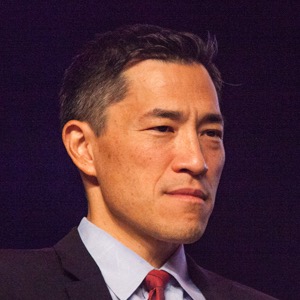Each week, we succinctly summarize the preceding week of Federal Circuit precedential patent opinions. We provide the pertinent facts, issues, and holdings. Our Review allows you to keep abreast of the Federal Circuit’s activities – important for everyone concerned with intellectual property. We welcome any feedback you may provide.
– Joe Robinson, Bob Schaffer, Parker Hancock, and Puja Dave
83-2. To Avoid Laches, Defendant in Foreign Litigation Must Have Timely and Adequate Notice that Plaintiff Intends to Pursue Rights in United States
Lismont v. Alexander Binzel Corp., No. 2014-1846, 2016 U.S. App. LEXIS 2598 (Fed. Cir. Feb. 16, 2016) (Before Reyna, Lourie, and Chen, J.) (Opinion for the court, Chen, J.). Click Here for a copy of the opinion.
Binzel owns a German patent for a method of manufacturing a contact tip for metal inert gas welding. Mr. Hedwig Lismont asserted that he developed the patented method in response to Binzel’s request for assistance. In 1998, Binzel applied for the patent naming Mr. Sattler, a Binzel employee, as the inventor, instead of Mr. Lismont. In 2000, Mr. Lismont initiated litigation against Binzel in Germany, alleging that he was the sole inventor of the patent. The German courts ruled that Mr. Lismont failed to show he was the sole or joint inventor. In 2012, Mr. Lismont initiated this litigation seeking to correct inventorship, under 35 U.S.C. § 256(a), in a corresponding U.S. patent that issued to Binzel in 2002. The district court granted summary judgment to Binzel, asserting that Mr. Lismont’s claim was barred by laches.

Judge Raymond Chen of the United States Court of Appeals for the Federal Circuit, October 2015 at the AIPLA annual meeting.
Laches is committed to the district court’s discretion, since the factors underlying its determination are factual in nature. The Court held here that a rebuttable presumption of laches attached when more than six years passed from the time an inventor claiming to be omitted knew or should have known of the of the relevant patent. The Court agreed with the district court that Mr. Lismont was aware that Binzel had filed a U.S. patent application covering the method he allegedly invented. To avoid the rebuttable presumption of laches, Mr. Lismont should have filed his litigation as of the date the U.S. patent was issued. The Court noted that there was nothing in Mr. Lismont’s complaint to the German court regarding inventorship of the U.S. Patent.
Further, there was no excuse for Mr. Lismont’s delay, and the defendant had no notice of his intention to pursue patent rights in the United States upon completion of foreign proceedings. The Court agreed with the district court that the initiation of patent litigation outside of the United States and the existence of U.S. patents are not sufficient to notify a defendant that the plaintiff will eventually seek to assert patent rights in the United States. Because Mr. Lismont provided no notice to defendants that it would pursue litigation in the United States, it was not an abuse of discretion for the district court to find that laches barred the later claim. Accordingly, the Court affirmed the district court’s ruling.

![[IPWatchdog Logo]](https://ipwatchdog.com/wp-content/themes/IPWatchdog%20-%202023/assets/images/temp/logo-small@2x.png)



![[Advertisement]](https://ipwatchdog.com/wp-content/uploads/2024/04/Patent-Litigation-Masters-2024-sidebar-early-bird-ends-Apr-21-last-chance-700x500-1.jpg)

![[Advertisement]](https://ipwatchdog.com/wp-content/uploads/2021/12/WEBINAR-336-x-280-px.png)
![[Advertisement]](https://ipwatchdog.com/wp-content/uploads/2021/12/2021-Patent-Practice-on-Demand-recorded-Feb-2021-336-x-280.jpg)
![[Advertisement]](https://ipwatchdog.com/wp-content/uploads/2021/12/Ad-4-The-Invent-Patent-System™.png)







Join the Discussion
No comments yet.